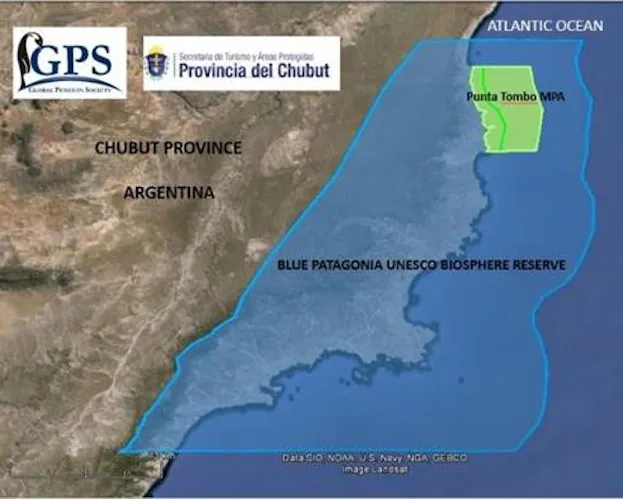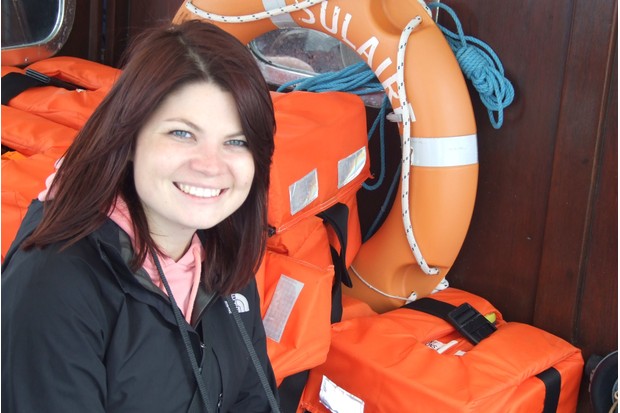The Global Penguin Society (GPS) led by the 2014 Whitley Fund for Nature Partnership Funding recipient Dr Pablo Borboroglu celebrates a big success as a new Marine Protected Area (MPA) on Argentina’s Patagonian coast is designated.
The MPA includes the feeding ground of two magellanic penguin colonies: Punta Tombo and Punta Clara, which are home to 25 per cent of the world’s population.
The area stretches over 60km of coastline and will influence the management of 1000 square km of coastal waters that extend up to 12nm offshore. Its main purpose will be to protect the feeding area and migration routes of half a million magellanic penguins.
Earlier this year the GPS received UNESCO approval for its proposal for the Blue Patagonia Biosphere Reserve, the largest of its kind in Argentina. Punta Tombo MPA forms part of one of its three core areas.

Biosphere Reserve (blue) and Punta Tombo MPA (green). © Dr Pablo Borboroglu
Dr Pablo Borboroglu, President and Founder of the GPS says, ‘The designation of Punta Tombo MPA is a historical accomplishment, since there is only one protected area in Argentina that is exclusively marine and only four per cent of the marine surface of the country is currently protected.”
Previous studies of the magellanic penguin colony along this coastline have stated that the existing protected area on land was not sufficient to secure the long-term survival of these threatened populations because the penguin feeding areas were not adequately protected.
The colony has declined by 30 per cent since the late 1980s, their feeding trips have increased by 80km on average per decade and about 40 per cent of the chicks die from starvation annually. The reduction in food availability close to the colony during the most critical stage of the breeding cycle is seen as one of the main causes of this decline.
Find out more about the Global Penguin Society and Whitley Fund for Nature.
